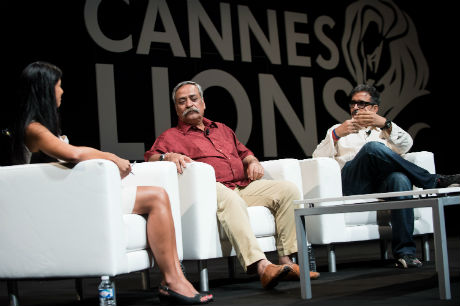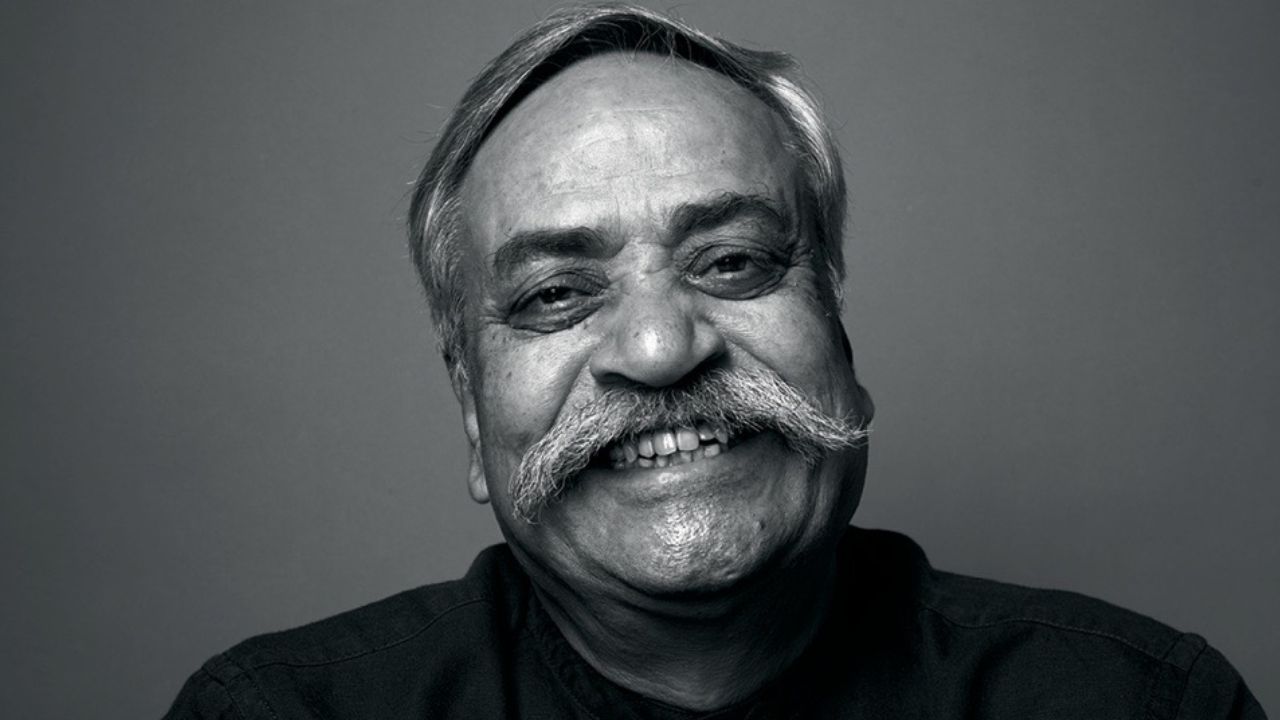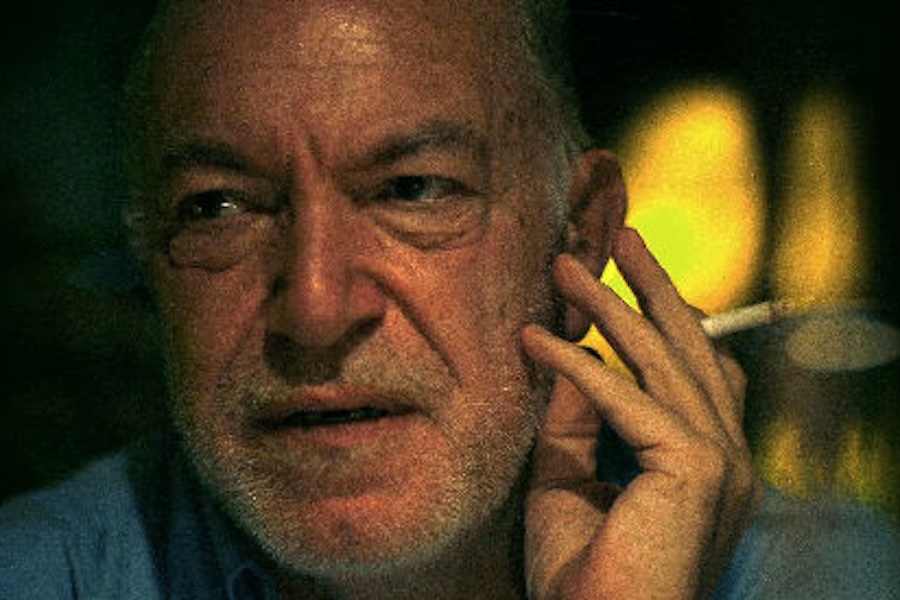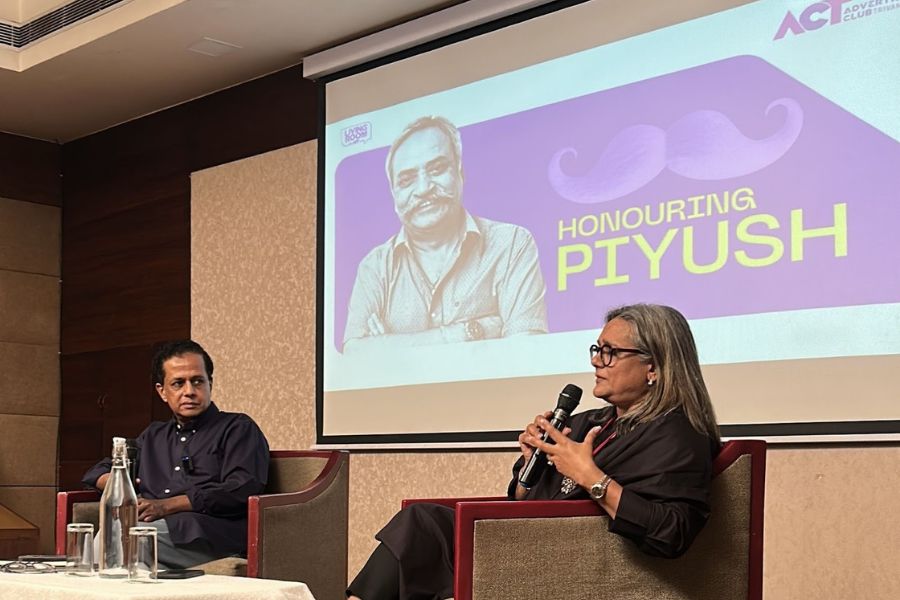“When you do good work, the degree of difficulty in the next assignment with the client will come down. Today we have a less formal relationship, and more partnership relationships with clients, as I am sure do other agencies. Did I ever think a client was a demon? Not in my life,” said Ogilvy & Mather’s Piyush Pandey. He was speaking on Day One of the Cannes Lions International Festival of Creativity alongside brother and ad filmmaker (director) Prasoon Pandey of Corcoise Films.
Piyush was responding to a question from Campaign Asia-Pacific brand director Atifa Silk, the moderator, seeking his views on client relationships. This was soon after he named ‘Happydent Palace’ and ‘Gundappa – Help a child reach five’ as his picks from India from outside the Ogilvy stable.
He said, “In the last few years, a lot of wonderful work has been done by the industry. I picked them because they are very rooted in India. One of them is rooted in our storytelling tradition and is based on a huge concept of suspension of disbelief. The other is rooted in the roots of India. Ideas come by observation. Someone went out there to find out the story, of the beliefs and superstitions that exist.”
The early days
The Pandeys took the audience through their early years that shaped them. Piyush said, “We have been very fortunate to have been born in a middle class Jaipur family. My father was in the co-operative movement. We used to travel by jeep to remote villages, travel in unreserved compartments of trains. When you travel 36 to 48 hours by train and share tiffin boxes with strangers, you thought they were family. Those were rich experiences, which came for free.”
Prasoon added, “Ideas don’t come from anywhere else; they come from experiences. We were blessed that we got to see so much.
Asked about the beginning of their careers, Prasoon explained, “I asked my mother once, ‘How did you have the courage to send me to design school?’ Remember, this was a time when no one knew of design and very few knew of advertising. My mom said, ‘I had no clue about what you wanted to study. But I saw a spark in your eyes whenever you spoke about design.’ I don’t think there was a plan for a career. But it happened.”
When Indian work got an identity
Asked by the moderator to describe the evolution of creative in Indian advertising, Piyush rolled back to the early ‘80s. He explained, “India was following the West quite a bit. The good – and I must say very good – copywriters of then were hesitant to do mass TV (which had just arrived as a medium) because they thought it was very ‘downmarket’. Despite the fact that India is very rich in culture, language, and has a storytelling tradition, we were not looking at all of that. That gave some people like me the opportunity to create work that was Indian, and spoke to Indians.”
Prasoon elaborated on the context, “Probably, until that point (early ‘80s), it had to do with legacy. For 200 years or so, we had the British ruling us. It took us about 50 years to get rid of that (legacy). Until the transformation (in advertising) happened, audiences were treated like idiots; and ideas were quite literal, presentation was western, the look was air-brushed and everything was meant to be aspirational - to the extent that people used fashion models for every role.”
Some of Ogilvy’s work that contributed to creating the ‘Indian advertising identity’:
“The success of campaigns such as these gave everyone the confidence to pursue an Indian tone in Indian advertising. To present a house as grungy as it would be, without airbrushing it. When you get a carpenter to play a carpenter in a film, instead of a model, there is so much that he will bring into the 30 seconds from the richness of his experience,” noted Prasoon.
After touching upon India’s rich storytelling tradition, the focus shifted to some of the recent work from the agency that was distinctly Indian.
Asked if India had arrived in their view, on the global stage, with awards ranging from its first Lion for Ericsson’s ‘One Black Coffee Please’ to Grand Prix for The Times of India, Prasoon surmised, “India has definitely arrived, because we give a damn about awards. We have arrived not because we have won Lions. But because if we can get the message across to 1.3 billion people, with pride in their hearts, then we’re on the right track.”
Follow Campaign's global live coverage from the Cannes Festival at cannes.campaignlive.co.uk




